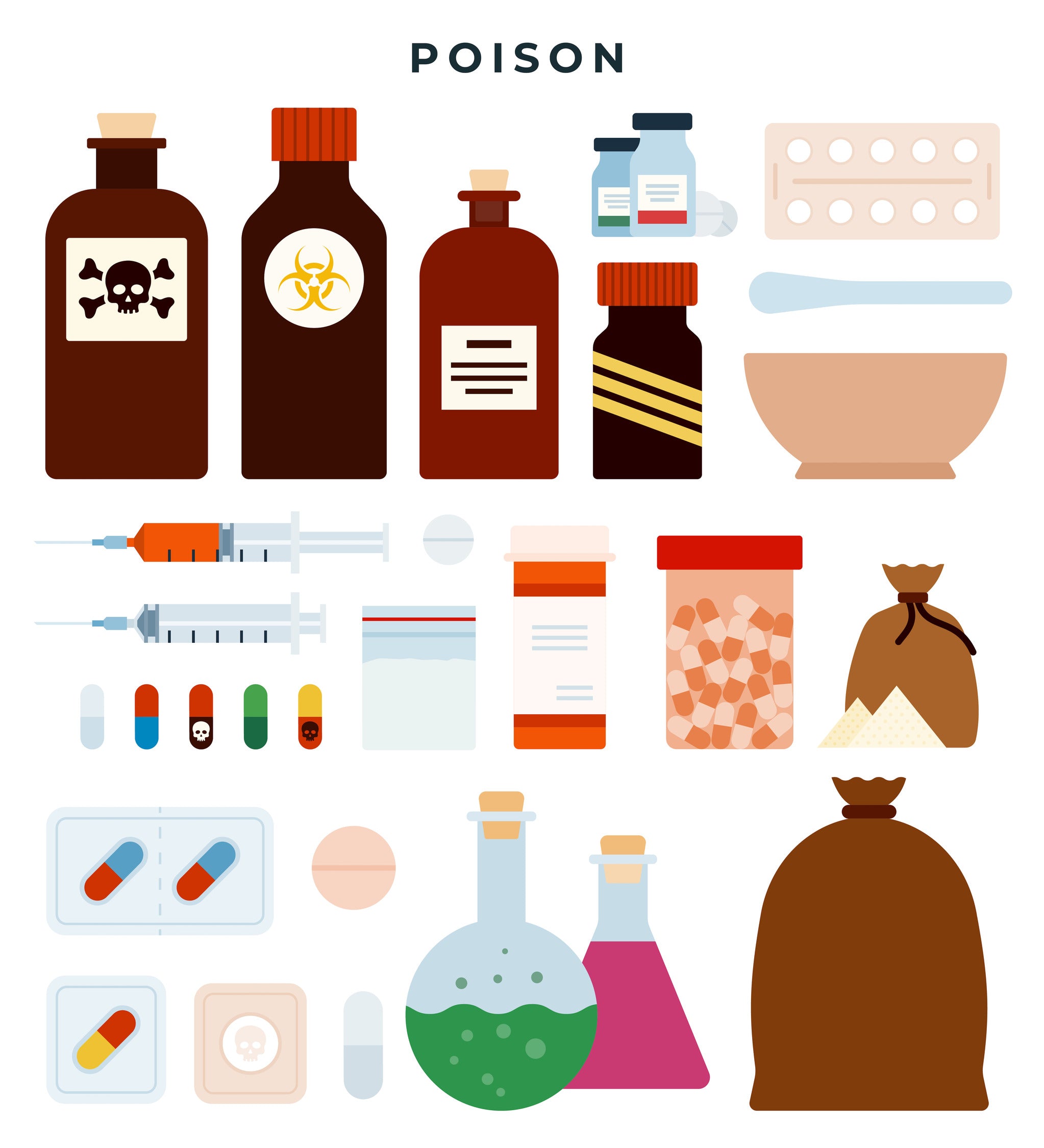
The B-Team: Vitamin B Complex and Its Role in Optimal Health
Summer’s here, which means lethargy has the perfect opportunity to creep into your body.
If you start experiencing fatigue, you must get a blood test to check your Vitamin B levels.
Why Vitamin B levels?
Because it plays a key role in providing your body with the energy required for daily survival and development. You must ensure you consume sufficient vitamin B, as it directly affects your brain and nerve functioning as well as the cardiovascular system.
But, here’s the kicker!
There isn’t just one type of vitamin B; there are eight!
And you should have adequate levels of all these eight micronutrients if you expect to function at your best.[1] This brings us to the next part.
What Are B Complex Vitamins?
Vitamins B complex are the building blocks of any healthy body and ensure your cells function properly.
Vitamin B Complex consists of:
- B1 (aka thiamine),
- B2 (riboflavin),
- B3 (niacin),
- B5 (pantothenic acid),
- B6 (pyridoxal phosphate or pyridoxine),
- B7 (biotin),
- B9 (folic acid or folate), and
- B12 (cobalamin)
Vitamin B Complex is water soluble and helps create red blood cells. They also play a vital role in extracting energy from proteins, fats, and carbohydrates. According to studies, they also help maintain your cholesterol levels.
A major percentage of Vitamin B comes from animal sources, which explains why vegans have vitamin B deficiency. The section below describes how you can get vitamin B through whole foods.
How To Get Vitamin B Complex?
Consume the following food items to increase your vitamin B complex levels:
-
Meats, Poultry, and Fish: They are great sources of protein as well as B1, B3, B5, B6, and B12
-
Grains: Rice, and other whole grains are great sources of B2, B3, B5, B7, and B9
-
Dark Green Vegetables: They offer a wealth of vitamins and minerals with minimal calories. Broccoli, for example, contains 7 out of 8 B Complex Vitamins
-
Fruits: Fruits such as bananas, watermelon, oranges, strawberries, and mangoes are a great source of vitamins B1, B5, B6, and B9
- Legumes: They are a rich source of vitamin B, particularly B6, B7, and B9


Now that you know how you can get your vitamin B, let’s take a look at the daily values (DVs) of each B vitamin you need:
|
Vitamins |
DVs for adults and children above 4 years |
DVs if pregnant or breastfeeding |
|
B1 |
1.2 mg |
1.4 mg |
|
B2 |
1.3 mg |
1.6 mg |
|
B3 |
16 mg or equivalent |
18 mg or equivalent |
|
B5 |
5 mg |
7 mg |
|
B6 |
1.7 mg |
2 mg |
|
B7 |
30 mcg |
35 mcg |
|
B9 |
400 mcg or equivalent |
600 mcg or equivalent |
|
B12 |
2.4 mcg |
2.8 mcg |
Now that you know how to get vitamin B and how much you need daily, let's look at their benefits.
Benefits Of Vitamin B Complex
Along with boosting your energy levels, Vitamin B Complex offers a host of other benefits:
Lowers The Risk Of Heart Disease and Stroke
According to a paper published in Nutrients in 2019[2], increased consumption of B6 is associated with a lower risk of heart disease. Another research published in the Critical Reviews of Food Science and Nutrition[3] suggests that higher consumption of folate and vitamin B6 is associated with a lower rate of heart disease.
A review published in the Neural Degeneration Research[4] revealed that low levels of vitamin B12 carry a higher risk of ischemic stroke. Another study published in Stroke and Vascular Neurology[5] reported that consuming vitamins B9, B12, and B6 reduced blood homocysteine concentrations by about 25 percent and lowered the risk of stroke by about 10 percent.
You Might Also Like: Heart Health 101: What You Need to Know.
Lowers The Risk Of Anemia
Vitamin B12 helps improve the red blood cell count. Shortness of healthy red blood cells causes tissues and organs to receive less oxygen which can also lead to anemia.
So, make sure you have enough B12 in your diet. Take a blood test and consult a Functional medicine practitioner before you consider supplementation.
Helps Prevent Beriberi
Beriberi is a disease that affects the heart, digestive system, and the nervous system. It is commonly found in malnourished people and those who drink heavily.
According to studies[6], a lack of vitamin B1 can cause beriberi. Ensure your diet has enough meat, whole grains, and beans.
Helps Improve Your Immune System
Vitamin B2, aka riboflavin, produces antioxidants that help the immune system function properly. According to the National Cancer Institute[7], these antioxidants destroy the unstable molecules that increase the risk of cancer and other diseases.
Want to keep cancer at bay? Consume your B2s.
Might Help Improve Vision and Reduce Migraines
As per studies[8], vitamin B2 (riboflavin) might help prevent migraines and cataracts.
According to Venuka Wick, MD, studies prove that high supplementation of riboflavin can effectively reduce the frequency and severity of migraines. Vitamin B12 and folate also help arrest age-related macular degeneration, a leading cause of blindness in older adults.
According to research published in the International Journal for Vitamin and Nutrition Research[9], taking B2 supplements helps reduce the frequency and duration of migraine attacks with minimal side effects. Furthermore, the National Institute of Neurological Disorders and Stroke mentions riboflavin as a potential natural solution for migraine.
Riboflavin also helps improve your energy levels, immune system, fight acne, muscle cramps, and carpal tunnel syndrome.
Helps Fight Dementia
Lack of B12 damages the nervous system and is linked to dementia, depression, and confusion.
According to research published in Cureus[10], low B12 compromises memory and cognition and causes tingling and numbness. Another study published in the journal Neurology[11] revealed that sufficient concentrations of B12 lower the risk of developing Alzheimer’s.
Helps Relieve Stress
Vitamin B5 helps manage some hormone levels. It is primarily used in the production of sex and stress-related hormones. It is also called “the anti-stress vitamin” as it helps regulate the production of the stress hormone ‘cortisol.’
Vitamin B5 also helps in the development stages, and it can be found in certain vegetables, , organ meats, potatoes, and whole-grains.
Facilitates Body Growth And Development
Vitamin B9, aka folic acid or folate, is crucial for babies’ growth and development. According to the Centers for Disease Control and Prevention[12], vitamin B9 can help prevent major congenital disabilities in babies, including brain and spine damage.
The National Institutes of Health[13] recommends teens and adults consume 400 micrograms (mcg) daily. Breastfeeding mothers should consume 500 mcg daily, whereas pregnant women should consume 600 mcg daily.
You can find B5 in dark-green vegetables, oranges, beans, peas, and asparagus.
Helps Improve Your Skin
A lack of B vitamins causes serious damage to your skin. According to the University of Rochester Medical Center[14], insufficient B12 can cause jaundice.
Vitamin B3 (niacin) helps reduce acne, eczema, and rosacea by tackling skin inflammation and improving skin barrier function. Niacinamide, a topical version of B3, helps build keratin, making the skin healthier and reducing inflammation.
Helps Prevent and Treat Mouth Ulcers
Vitamin B deficiency can cause painful mouth and canker sores.
According to a study published in the Annals of Palliative Medicine[15], B complex supplementation reduced the ulcer treatment and healing time by about two days.
Conclusion
You can't miss out on vitamin B complex if you want a healthy body.
Your body needs the vitamin B complex to sustain, grow, and function. Any deficiencies can cause symptoms such as fatigue, mood swings, anxiety, muscle weakness, inattentiveness, loss of digestion, and many more.
Older people and vegans have a higher chance of vitamin B deficiencies because older people cannot absorb all the nutrients, whereas vegan diets lack B vitamins.
People who consume a balanced diet rich in animal foods receive sufficient B12. As for the others, you may have to turn to oral supplements or injections. However, always get a blood test and consult a healthcare practitioner before self-supplementing.
If you want a quality B complex supplement, check out iThrive Essentials’ Enhanced B-Complex.
Made proudly in India, it is a supplement that provides all active forms of essential B vitamins plus choline & TMG (Trimethylglycine) for additional methylation support.
No more dullness!
References
-
B Vitamins and the Brain: Mechanisms, Dose and Efficacy—A Review. https://www.ncbi.nlm.nih.gov/pmc/articles/PMC4772032/
- Dietary Vitamin B6 Intake Associated with a Decreased Risk of Cardiovascular Disease: A Prospective Cohort Study
https://www.mdpi.com/2072-6643/11/7/1484
- Intake of vitamin B6, folate, and vitamin B12 and risk of coronary heart disease: a systematic review and dose-response meta-analysis of prospective cohort studies
https://www.tandfonline.com/doi/abs/10.1080/10408398.2018.1511967?journalCode=bfsn20 -
Role of vitamin B12 deficiency in ischemic stroke risk and outcome
https://journals.lww.com/nrronline/Fulltext/2021/16030/Role_of_vitamin_B12_deficiency_in_ischemic_stroke.10.aspx
-
B vitamins for stroke prevention
https://www.ncbi.nlm.nih.gov/pmc/articles/PMC6047336/
-
Beriberi
https://medlineplus.gov/ency/article/000339.htm
-
Antioxidants and Cancer Prevention
https://www.cancer.gov/about-cancer/causes-prevention/risk/diet/antioxidants-fact-sheet
-
Riboflavin
https://medlineplus.gov/druginfo/natural/957.html#Dosage
-
Supplementation with Riboflavin (Vitamin B2) for Migraine Prophylaxis in Adults and Children: A Review
https://pubmed.ncbi.nlm.nih.gov/26780280/
-
Low Vitamin B12 Levels: An Underestimated Cause Of Minimal Cognitive Impairment And Dementia
https://www.ncbi.nlm.nih.gov/pmc/articles/PMC7077099/
-
VITAMIN B12 MAY REDUCE RISK OF ALZHEIMER’S DISEASE
https://www.aan.com/PressRoom/Home/PressRelease/872
-
Folic Acid
https://www.cdc.gov/ncbddd/folicacid/about.html
-
Folate: Fact Sheet for Consumers
https://ods.od.nih.gov/factsheets/Folate-Consumer/
-
Methylmalonic Acid (Blood)
https://www.urmc.rochester.edu/encyclopedia/content.aspx?contenttypeid=167&contentid=methylmalonic_acid_blood
-
Clinical efficacy of vitamin B in the treatment of mouth ulcer: a systematic review and meta-analysis
https://apm.amegroups.com/article/view/72221/html



Leave a comment
This site is protected by hCaptcha and the hCaptcha Privacy Policy and Terms of Service apply.